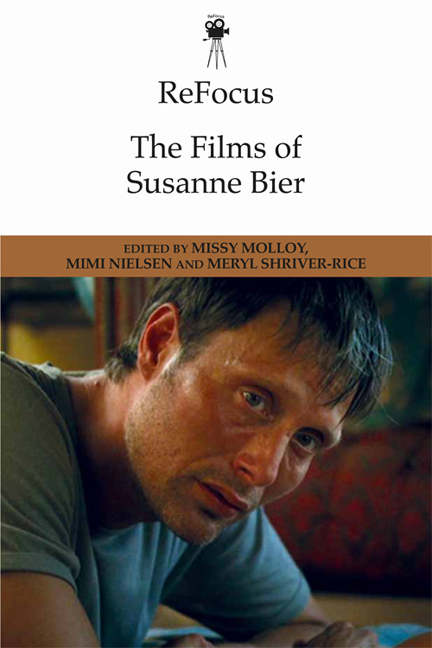Book contents
- Frontmatter
- Contents
- List of Figures
- Notes on Contributors
- Foreword
- Introduction: Susanne Bier's Boundary-Crossing Screen Authorship
- Part 1 Generic and Industrial Fluidity
- Part 2 Negotiating Identity
- Part 3 Authorship and Aesthetics
- Part 4 Transnational Reach
- Postscript: A Conversation with Susanne Bier
- Filmography of Susanne Bier
- Acknowledgments
- Index
4 - Beginning with Jewish Survival: Freud's Leaving Home
Published online by Cambridge University Press: 01 May 2021
- Frontmatter
- Contents
- List of Figures
- Notes on Contributors
- Foreword
- Introduction: Susanne Bier's Boundary-Crossing Screen Authorship
- Part 1 Generic and Industrial Fluidity
- Part 2 Negotiating Identity
- Part 3 Authorship and Aesthetics
- Part 4 Transnational Reach
- Postscript: A Conversation with Susanne Bier
- Filmography of Susanne Bier
- Acknowledgments
- Index
Summary
Freud's Leaving Home (Freud flyttar hemifrån …, 1991) has a most provocative title; “Freud” in this instance refers to the twenty-five-year-old daughter of a Swedish-Jewish family, Angelique Cohen, who has earned her familial nickname by infusing discussions with psychological analyses. Of course, the title serves as double entendre, suggesting that leaving home is always fraught with psychoanalytical significance. More specifically, it recalls the opening of Freud's 1909 essay, “The Family Romance”:
The liberation of an individual, as he grows up, from the authority of his parents is one of the most necessary though one of the most painful results brought about by the course of his development. It is quite essential that liberation should occur and it may be presumed that it has been to some extent achieved by everyone who has reached a normal state. Indeed, the whole progress of society rests upon the opposition between successive generations. On the other hand, there is a class of neurotics whose condition is recognizably determined by their having failed in this task. (237)
Angelique, at the film's outset, embodies just such failure; apparently past adolescence, her bedraggled appearance and discomfort with her braces, and her retreat to her bedroom (from which she argumentatively phones in questions and complaints to her mother, who is in other rooms of their apartment), play humorously with a portrait of an adult who can't leave home or childhood. She is fixated on being annoying by engaging in numerous small rebellions. The film uses comedy to treat dramatic and even tragic circumstances, which I will here discuss not only in relation to Freud's theories, but those of Melanie Klein, Alice Miller, and Marianne Hirsch.
Susanne Bier renders screenwriter Marianne Goldman's narrative as a comic and poignant investigation of a post-Holocaust Jewish family in Sweden. As Bier's first feature film, it won a series of prizes that generated the possibility for her future success. It has also been called ‘the first feature film in Sweden to depict Swedish-Jewish culture’ (Solia 1998: 219), and a detailed description of the film figures in Rochelle Wright's The Visible Wall: Jews and Other Ethnic Outsiders in Swedish Film, in which the author notes its striking focus on the range of Jewish identities within the same family, while it does not primarily focus on interactions with non-Jewish Swedes, as is the case with other films in her corpus.
- Type
- Chapter
- Information
- ReFocus: The Films of Susanne Bier , pp. 83 - 96Publisher: Edinburgh University PressPrint publication year: 2018



